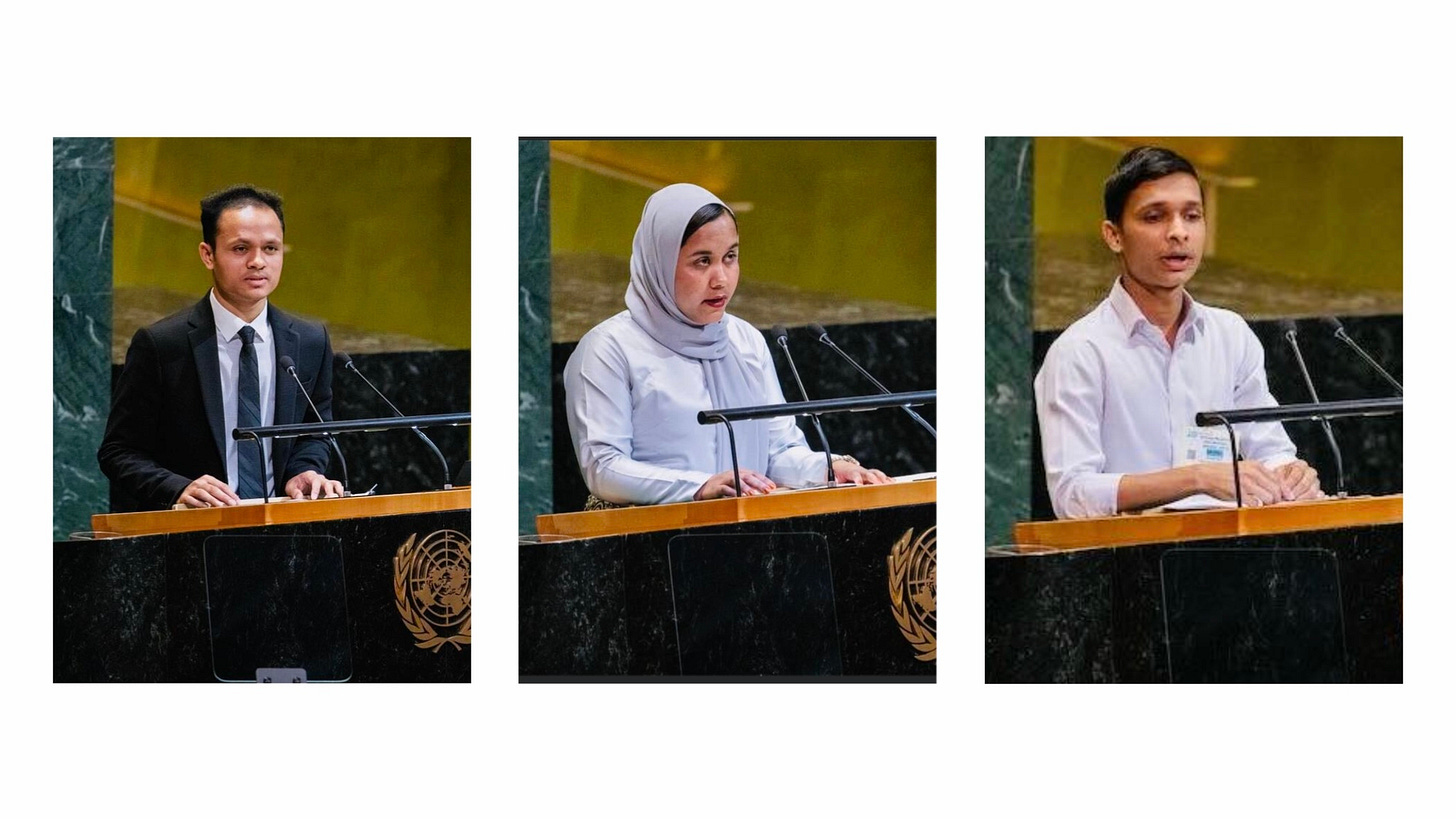RCC-interim dominates at the UN | BNP Revisionism

When the United Nations convened its high-level conference on the Rohingya and other minorities in Myanmar last week, it was presided over by Annalena Baerbock. She is the new President of the UN General Assembly. For many in the humanitarian world, that detail should have raised eyebrows.
As Germany’s foreign minister, Baerbock was one of Europe’s most vocal defenders of Israel’s onslaught on Gaza. She publicly justified targeting Palestinian civilians and echoed claims that have been widely debunked, such as blaming Hamas for the loss of protected status in civilian sites. Under her watch, Berlin quadrupled arms exports to Israel and dismissed South Africa’s genocide case at The Hague as “baseless.” Yet here she was, chairing a global dialogue on genocide prevention and minority protection! The transition from enabler of impunity to arbiter of conscience seems a swift and frictionless one in the moral economy of the United Nations.
Her record in Gaza casts a long shadow over this new role. Baerbock’s brand of “feminist foreign policy” managed to mourn Ukrainian mothers while overlooking Palestinian ones. The same selective empathy now underpins her stewardship of a conference about a people abandoned to limbo - the Rohingya - whose own genocide has long been managed, not remedied, by the same system she represents. How credible can the UN’s moral appeals sound when its presiding voice has been complicit in whitewashing another genocide still unfolding before our eyes?
This contradiction felt even starker in a week when Israeli authorities arrested Bangladeshi photographer Shahidul Alam — and a group of Rohingya photographers publicly demanded his release. The visual solidarity of the persecuted - from Gaza to Cox’s Bazar - exposed more truth about power and conscience than any speech in the UN’s marble halls.
Anyway…behind those speeches, a quieter political story unfolded. The Rohingya Consultative Committee-interim (RCC-interim), an organisation led by Aung Kyaw Moe and Jaivet Ealom, quietly dominated the stage.
